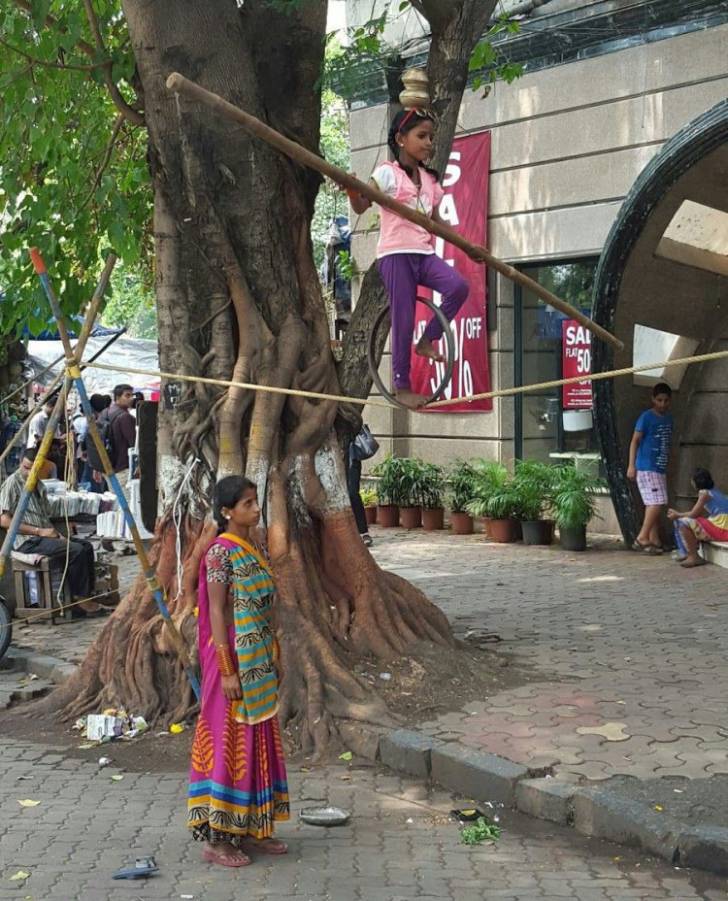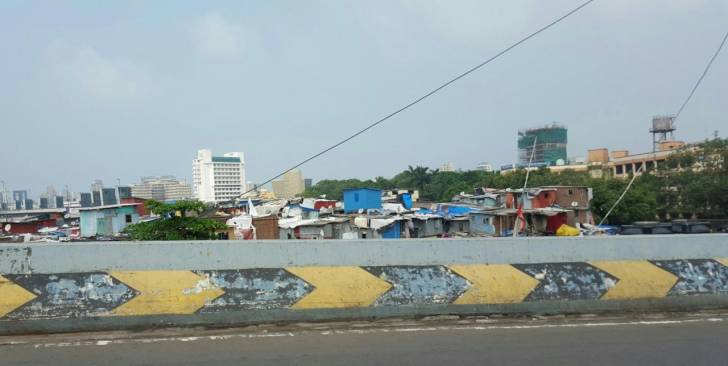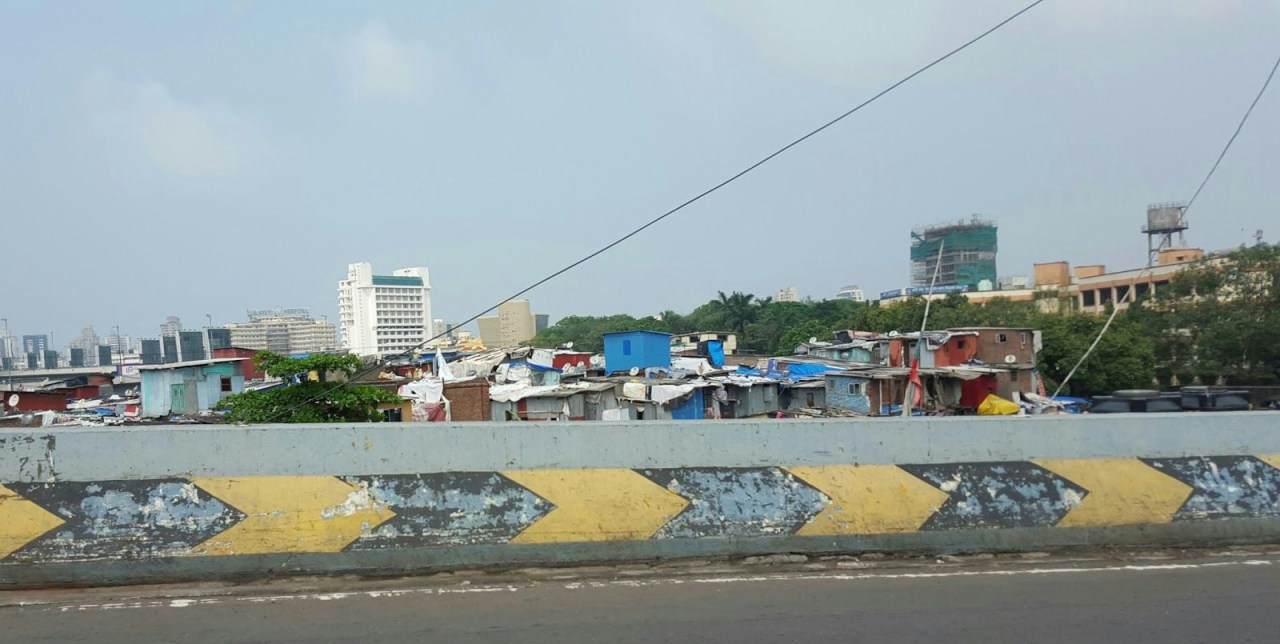Lessons from the children of Mumbai
by Paul Moroz, Deputy CIO, via The Art of Boring, Mawer Investment Management
Sometimes no amount of preparation (or “book study”) can educate you as much as seeing it with your own eyes. I found this to be the case in Mumbai as I rolled into the muggy city of 19 million people Sunday morning at 2:30am. The taxi driver dodged stray dogs on the highway as we made our way to my hotel, the Trident. The poverty, I expected; it was the children that surprised me.

Managing to wake before my 8:00am alarm sounded, I washed down a vegetarian Indian breakfast with coffee before making an errand to retrieve INR 10,000 rupee (CAD 200) and set out to explore the city before my scheduled investor meetings began the next day. As my cab driver began a set routine of tourist stops, I began to encounter the children of Mumbai.
The children came up to me selling maps, scarves, toys and virtually anything that, just maybe, a tourist would buy. Some offered services, some simply begged. And as the day progressed, I lost my moral compass in managing their requests, while acclimatizing to the value of the rupee in the context of Mumbai. In each poverty stricken child, I saw my own two kids, and my heart broke a little more as the day went on.
The first boy who approached me knocked on the cab window in the middle of a busy intersection peddling Spiderman toys that would stick to the wall. I passed over INR 200 (not even knowing what the toys were worth) and wrestled internally about whether the market really needed more of these toys. (Did I send it the wrong signal?) Later at my hotel, I would reexamine them, toss them in the garbage, and determine that I just should have just given the child money.
At my next stop, the City museum, a young boy without shoes followed me to the entrance, begging. I resisted for a moment, musing over the concept of economic moral hazard, and then imagined my own boys begging. (Seriously? I’m actually considering moral hazard?) I handed over my smallest bill at the time (INR 500 or $10 CAD). Minutes later, I was held up at the ticket counter as the Museum office had trouble breaking my INR 1000 bill. I wasn’t sure if the shoeless boy was old enough to know how much money he had actually received.
My driver then took me to Dhobi Ghat, a large open laundry mat where Dhobis manually wash clothes, now a popular tourist attraction. I was swarmed by a group of women and children. One boy was selling a map of India. He offered it to me for 250 rupees, and I countered with a INR150 bid. We settled at INR 200. I was torn at the time between teaching negotiation skills and giving him a better profit margin. (Since I estimated his age at 7 years old tops—I’m not sure bartering was the right choice.) In all the commotion, I forgot to look at the actual sight.

In the afternoon, we made our way to the larger Prince of Wales Museum and a couple of girls had set up a bit of a circus outside the entrance. I cringed (again with moral hazard) with the idea of promoting the dangerous act (see below), and yet was in awe of the act itself and inspired by the creative entrepreneurism. I took a picture of the spectacle and then handed over a wad of bills (maybe INR 100). I was then told that since I had taken a picture, it would cost INR 200. I argued there was no agreement (it seemed like moral greenmail) and ended up refusing the additional amount based on principle. I would later lie awake that night, realizing the ask was for the equivalent of $2 CAD, and debate whether I would be judged in an afterlife for my decision. Maybe I got it wrong, morally or culturally or both.

In seeing Mumbai with my own eyes, I discovered the connection these children have with the business culture. Back in Canada, I make my kids run their “bottle collection business,” returning empties for cash—my attempt to teach them lessons about work ethic, money and business. This is dwarfed by the lessons the children of Mumbai are forced to learn, by necessity, every single day. They learn about reciprocity in business, how to sell, how to close a sale, the value of being persistent, having a strong work ethic, the value of money itself, negotiating and creativity in business. These lessons are a matter of survival.
I don’t envy these children. But for many of them, this practical education in life and business will be second to none. Many will succeed in business because they grew up having to do so. And it will be no surprise that some of the world’s greatest entrepreneurs and business people will come from India, having started a variety of businesses in their youth, growing out of poverty and helping to build the economy. At the root of it, culture becomes a competitive advantage early on.
There is a positive intersection between business and ethics that can often be overlooked. While I focused on my brief experience in Mumbai from the perspective of maintaining a straight moral compass (albeit while struggling with my limitations of knowledge), I haven’t for a moment pitted business against morality. I believe capitalism can and does improve the quality of living over time. And while certain checks and balances can be required, it doesn’t have to be an either/or proposition. Nowhere is this more apparent than India; its underlying entrepreneurial spirit and culture provides the landscape for great potential.
Perhaps the best example lies in the slums of India. Just one picture provides insight to the opportunity for the housing development business to align with ethics in developing the working class. Some reckon the housing shortage in India is as much as 18 million units. There is also the challenge of financing and providing a development pathway to reduce the poverty that exists in the slums. I believe our investment in LIC Housing Financial—one of the largest financiers of mortgages in India—not only will make money for our clients, but helps finance the growth of India’s housings stock and facilitates the creation of wealth and credit for a growing middle class in India.

I have no doubt there will be children of Mumbai that grow up to be successful and carry on a culture idiosyncratic to their upbringing. And in the process they will help transform the country and contribute to a rising standard of living in India. My hope is that I can find that next entrepreneur and help them make it happen.
Paul Moroz, CFA
Deputy Chief Investment Officer, Mawer Investment Management













